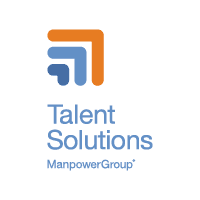Preparing Business to Succeed in the Digital Age
Innovation is critical to business success. Experis helps organisations access and create expertise to support the implementation of new technologies and processes that can scale quickly.
Business Transformation Services
Our expertise in business transformation enables organisations to cultivate individuals and teams prepared for the digital age.
We provide a range of advisory services to define, design and validate our clients’ business and digital transformation initiatives and underlying capability, including:
Projects, Programmes and Project Management Office (PMO): We help our clients to realise their business and technology objectives through a range of services. Our transformation experts identify opportunities for our clients to generate new value by leveraging technology, creating new customer experiences and adopting agile working practices. We also ensure existing change functions are operating efficiently and effectively. Our project consultants design right-sized PMOs and governance frameworks, review and optimise processes and portfolios, and undertake independent audits and maturity assessments. In addition, we provide coaching and training to project teams and sponsors, as well as rescue failing projects.
Quality Assurance (QA): We advise our clients on best practice and recommended approaches for software and games testing. Our services in this area include QA Assessment and QA Governance.
Global Sourcing Advisory: Through our presence in 80+ countries globally, we advise clients on the most cost-effective ways to build technology delivery capabilities by leveraging global expertise.
We help our clients to deliver their business transformation objectives and outcomes through our range of project services, including:
Agile Delivery: We deliver client projects using scrum teams of experienced consultants to implement short, iterative sprints of agile delivery, driving quicker realisation of business benefits.
Projects, Programmes and PMO: We reduce time-to-benefit by quickly deploying management and delivery capabilities on a light or full outcome basis. We use industry best practice to deliver on time and on budget across large transformations, standard IT projects, digital product teams and PMOs.
Testing: We deliver testing capabilities in both functional and non-functional areas for our clients, ensuring improved quality of project delivery and increased automation.
Global (Borderless Talent) Sourcing: Our global reach enables us to strategically maximise value from our client’s workforce. Through our global governance, we engage consultants across multiple countries on a single project, whilst reducing admin by invoicing to one client cost centre. We use our global talent ecosystem and technology to quickly scale these projects.
Through our managed services, we take full responsibility for the smooth operation and continuous development of customer IT services.
Through professional resourcing and our Experis Academy, we get your workforce ready for digital transformation. We attract and match talent with in-demand skills as well as provide critical training for roles such as: Business Analysts, Data Architects, Data Engineers, Data Scientists, Scrum Masters and Agile Project Managers.
Our Services
-

Professional Resourcing
Finding the right talent with in-demand skills and expertise to fill your most critical roles.
-

IT Consulting
Leading digital transformation practices through our network of consultants, experts and partners.
-

Project Services
Providing business-critical IT project expertise and implementation of new solutions.
-

Managed Services
Managing IT resourcing, application maintenance and operations so you can focus on your core business.
Add the tag: "business-transformation" to the blogs you want to display here..
-

Tech Talent 2025: Trends Reshaping the Workforce
By: Victoria Allwright, IT Services Director, Experis UKIn an era where technology is evolving at an unprecedented pace, understanding the trends that will shape the workforce is crucial for C-Suite leaders.According to the World Economic Forum’s Future of Jobs Report 2023, 44% of workers’ skills will be disrupted by 2027, with AI and automation driving the most significant changes. Furthermore, McKinsey estimates that by 2030, demand for technological skills will increase by 55% compared to 2020 levels.Last week I had the pleasure of hosting our Tech Talent 2025 – Trends Reshaping the Workforce webinar alongside industry experts, discussing the future of tech talent and how organisations can stay ahead of the curve.Here’s an overview of the key trends, challenges and strategies that will define the tech talent landscape in the coming years.Key trends from 2024Technology adoption:AI & automation: 75% of organisations have adopted some form of AI-driven workforce automation, highlighting the critical role of AI in enhancing productivity and efficiency (Gartner, 2024).Remote and hybrid work:Workplace flexibility: According to a 2024 McKinsey report, 60% of companies reported an increase in hybrid work adoption, with 40% of tech firms shifting to fully remote operations. This shift underscores the importance of flexible work arrangements in attracting and retaining top talent.Skills demand:In-demand skills: Cybersecurity, AI/ML engineering, and cloud computing remained the top three most sought-after skills. Despite economic challenges, global tech employment grew by 6.2% in 2024, demonstrating the sector’s resilience. (LinkedIn Talent Report, 2024; CompTIA, 2024).Looking ahead to 2025The future of tech talent is set to be shaped by emerging technologies such as generative AI, quantum computing and advanced automation. These innovations will create new job roles and demand new skills, making it imperative for organisations to adapt their talent strategies accordingly.To help bring our conversation to life I was joined by an incredible panel of experts, who each brought unique insights into how technology is redefining talent acquisition, workforce planning, and organisational agility across four key areas.Laura Foster: Associate Director for Technology and Innovation at techUKReskilling imperative:“The innovation gap is ultimately a reskilling gap. Businesses must invest in long-term reskilling initiatives to ensure their workforce remains competitive. Tech companies like IBM are leading the way by committing to train millions in AI skills.”Furthermore, PwC’s Workforce of the Future study reveals that 79% of CEOs are concerned about the availability of key skills, reinforcing the urgency for reskilling efforts.Robert Enright: Global Leader for Advisory Services in Intelligent Talent Operations at IBMAI integration:”There is a need for organisations to balance AI investment with building a capable workforce, applying employee and outcome-centric approaches to successfully integrate AI into the workforce.”Karina Arteaga: Tech Strategy Leader with experience at Meta and VMware.Team transformation:“AI is causing significant shifts in team structures and activities. In the future, upskilling and defining activities suitable for AI versus human talent to maximise productivity and innovation will become increasingly important.”Workforce transformation strategiesTo stay competitive, organisations must embrace workforce transformation strategies that prioritise diversity, inclusion, and continuous learning:Diversity and inclusion: Fostering a sense of belonging and unleashing creativity are key to retaining tech talent. Diverse teams are 36% more likely to outperform their competitors and make better decisions 87% of the time.HR involvement: HR must be involved in shaping business strategies to ensure workforce planning aligns with evolving skill requirements. This collaboration is essential for creating a future-ready workforce.Human-centric workforce planningMaintaining a human-centric approach to workforce planning is crucial for leveraging AI and automation responsibly:Job redesign: Real transformation happens when jobs are redesigned to create value for both employees and customers. This approach ensures that AI integration enhances rather than disrupts the workforce.Governance and structure: Effective governance and structured implementation of AI are necessary to address the challenges and opportunities presented by emerging technologies.The future of AI & recruitmentThe recruitment process for tech talent is evolving, with a shift towards agile, data-driven and skills-focused approaches:AI in recruitment: While AI for selection and sourcing is often oversold, its true value lies in shaping onboarding, learning and career pathways. Organisations must adopt agile recruitment models to stay ahead in the competitive tech talent market.Deep tech talent development: Organisations should build relationships with educational institutions to develop a pipeline of talent for deep tech roles. Flexibility in hiring and career pathways is essential for attracting and retaining top talent.Leadership’s role in tech strategyC-Suite leaders play a pivotal role in crafting effective technology strategies that drive workforce transformation:Adaptability and problem-solving: Leadership focus has shifted towards adaptability and problem-solving skills. Continuous learning and flexibility are essential for navigating the rapidly changing tech landscape.Strategic planning: Leaders must think strategically about the roles and skills needed in the future, ensuring their organisations are prepared for the challenges and opportunities ahead.ConclusionAs we look towards 2025, the tech talent landscape will be defined by rapid technological advancements and evolving workforce dynamics. Leaders must prioritise reskilling, embrace diversity and inclusion and adopt agile recruitment and workforce planning strategies to stay competitive. By fostering a culture of continuous learning and adaptability, organisations can ensure they are well-positioned to thrive in the future of work.Experis is here to help you navigate these changes, providing the skilled professionals and workforce solutions needed to drive digital transformation, optimise performance and future-proof your organisation. Let’s work together to build a workforce that’s ready for the challenges and opportunities ahead!Contact us today
-

Accelerating Adaptability
2025 UK Workforce TrendsFor more than 10 years, we have partnered with our clients to explore four underlying forces shaping the future of work. As we look ahead to 2025 and beyond, we examine how the pace of change will accelerate and what it means for employers and the workforce.An increasingly diverse global workforce will impact the future of who is available to work, as well as when and how they’ll work.The world of work changed forever in 2020, and employer and individual adaptation to distributed models is still in progress.The democratisation of AI is fast-tracking digital transformation and evolving the structure of organisations.In the Industry 4.0 era, organisations are coping with critical global talent shortages against a backdrop of geopolitical instability and environmental and sustainability challenges.EXPLORE THE REPORT NOW
-

Experis Tech Talent Outlook Q1 2025
Businesses in the IT sector signal an increased appetite to hire for Q1 2025, according to the latest Experis Tech Talent Outlook. Employers in the IT sector report a Net Employment Outlook of +51%, an increase of +3% on last quarter.Despite hiring optimism appearing high, this is driven by a desire to keep ahead of technological advancements by recruiting for emerging skills and specialist expertise. Volume hiring for generalist skills on the other hand has cooled across much of the sector.Many tech companies who were cautiously optimistic about the new Government giving them the confidence to make new appointments have not yet been given the reassurance they need to go ahead with hiring plans.Download the infographic below for all the insights: Infographic
Business Transformation jobs
-
Contract
Senior Information Assurance consultant
Manchester
Posted July 15, 2025
Read more -
Permanent
Legal & Contracts Officer
Bedfordshire
Posted July 15, 2025
Read more -
Contract
Project Manager
City of London
Posted July 14, 2025
Read more -
Contract
Project Planner - Defence
Plymouth
Posted July 14, 2025
Read more -
Contract
SC Engagement Manager CGEMJP00305291
Barrow-in-Furness District
Posted July 14, 2025
Read more -
Permanent
Project Manager
Birmingham
Posted July 14, 2025
Read more -
Contract
Technical Consultant
England
Posted July 11, 2025
Read more -
Contract
SAP HCM, HR Consultant
England
Posted July 10, 2025
Read more -
Contract
Project Manager
City of London
Posted July 10, 2025
Read more


INSIGHTS & INTELLIGENCE
Experis leverages internal research and deep industry expertise to help organisations succeed in a rapidly evolving digital world.
In today's world of work, companies must plan for unpredictability and need to be built for change. With technological disruption and geopolitical uncertainty continuing at pace, we can be certain that further change lies ahead. Keep up-to-date with the latest in the IT world of work with insights from Experis.

Get in Touch
See how Experis can deliver the most powerful combination of digital solutions to drive business performance.


